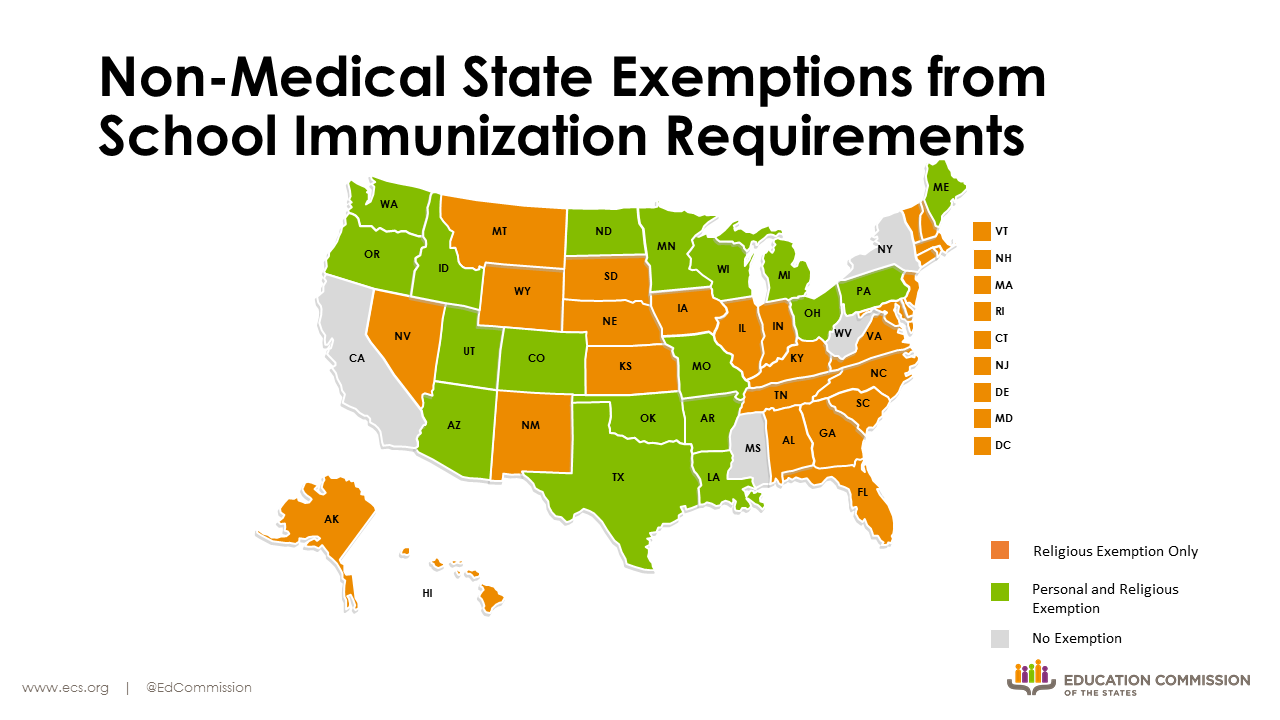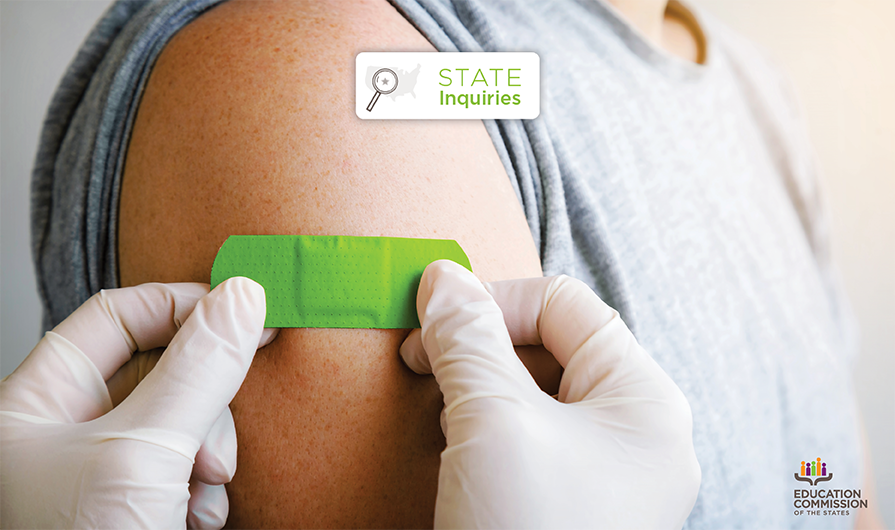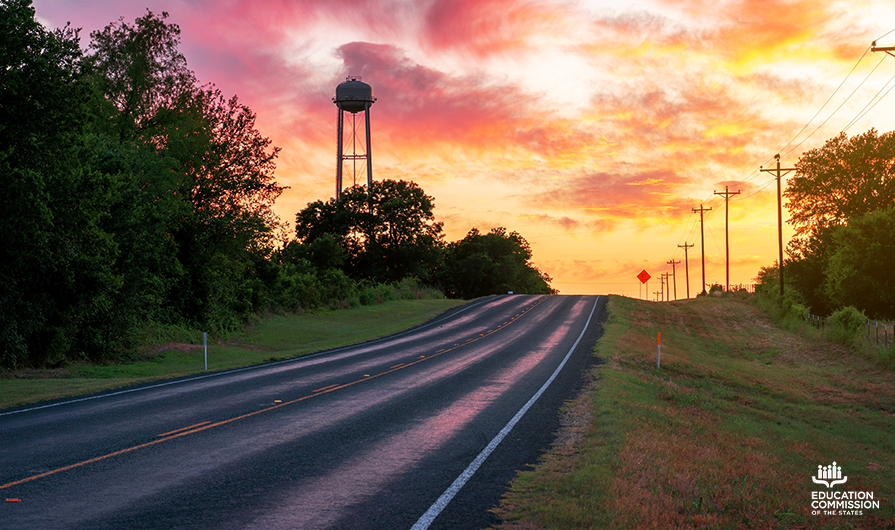In the past year, New York City saw a large scale measles outbreak, bringing forth news stories and public discourse around whether states should permit exemption from vaccines on religious or philosophical grounds. Given the current climate, policymakers across the country face a situation where public opinion and personal beliefs meet research from organizations like Centers for Disease Control and Prevention that document how immunizations prevented more than 21 million hospitalizations and 732,000 child deaths in the United States over the past two decades.
What is the state policy landscape?
All 50 states and the District of Columbia have policies requiring vaccines for students and providing exemptions to students with documented medical reasons for not being vaccinated. All but four states (California, Mississippi, New York and West Virginia) allow exemptions for religious beliefs. Sixteen states allow philosophical exemptions for people objecting to immunizations for personal, moral or other beliefs.

What counts as a religious or philosophical exemption?
The criteria for obtaining a religious or philosophical exemption vary widely by state. According to a 2019 report from the National Conference of State Legislatures, generally, states give exemptions under the following conditions.
- Religious exemption: States generally provide religious exemptions when a parent has a sincere religious belief against vaccinating their child. What constitutes a sincere religious belief is determined by the entity with the authority to grant exemptions, and that varies by state.
- Philosophical exemption: When permitted in state policy, states generally provide philosophical exemptions when a parent has a conscientiously held philosophical or personal belief against vaccinating their child. What constitutes conscientious is determined by the entity with the authority to grant exemptions, and that varies by state.
What happened in 2019?
During the 2019 legislative sessions, three states took action to limit religious and philosophical exemptions:
- Maine removed personal and religious exemptions beginning in 2021.
- New York became the fourth state to eliminate religious and personal belief exemptions for vaccinating school children.
- Washington removed the personal belief exemption for the measles, mumps and rubella vaccine requirement.
What are some examples of current state policy?
- Immunization Requirement: Immunization is required upon school entry.
- Grace Period: State statute does not identify a grace period.
- Immunization Exemptions: The state allows medical exemptions.
- Oversight: The state department of health, in consultation with the department of education, has adopted rules to enforce the state immunization policy. School districts are responsible for ensuring that all students have documentation proving immunization before school entry.
- Immunization Requirement: Students must provide the school with an up to date certification of immunization from a doctor. Parents or guardians can also provide authorization for a public health official to administer the immunization.
- Grace Period: The parent or guardian has 14 days after being notified to provide the record to the school.
- Immunization Exemptions: The state allows medical, religious and philosophical exemptions.
- Oversight: The state department of health oversees the immunization and exemption process. The department of education is required to publicly post the required immunizations, in addition to recommended immunizations. The schools are responsible for collecting immunization records.
- Immunization Requirement: Upon school entry, parents or guardians are required to provide proof of vaccination.
- Grace Period: If a student’s parent or guardian has not provided the school with a record of their immunizations, they have until Oct. 15 to provide the appropriate documentation.
- Immunization Exemptions: The state allows medical and religious exemptions.
- Oversight: The department of public health sets the immunization requirements for school entry. Schools must collect immunization records of their students and administer the process of ensuring students are vaccinated. Schools are required to report to the state department of education the number of students who are vaccinated and receive exemptions in their school.
As public attention and outbreaks emerge, states will have to balance an individual’s beliefs with public health in schools.
We frequently receive questions from policymakers on issues like these. A full response to a question on state vaccination requirements and exemptions can be found here. If you have more questions about this or other education policy topics, please contact us.










